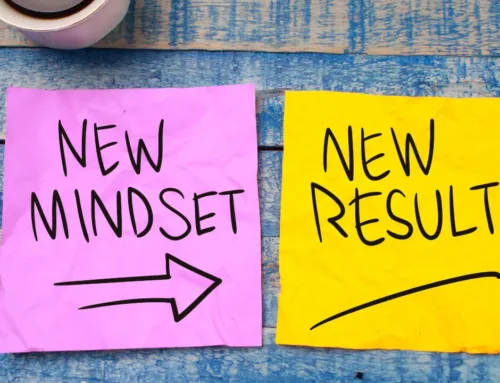20 Sales Leaders and Hiring Managers Share
Their #1 Sales Recruiting Tip
Hiring is hard, and hiring salespeople is even harder.
When it comes to sales hiring, there is no silver bullet approach. There is no one size fits all. From sourcing, screening, qualifying, interviewing, and moving candidates through your process, every step is critical. Hiring requires budget, time, and support from the executive team.
Companies need top sales performers in order to scale and grow revenue. But how do they recruit them? Where do they find top sales talent? What sourcing tactics work? What interview questions help them identify the right fit? What qualities and sales characteristics should hiring managers look for? Who should be involved in the process?
Great questions to real challenges companies face daily. So to uncover what really works, we decided to ask 20 top hiring managers, HR leaders, business owners, and sales leaders to provide their #1 sales recruiting tip when it comes to finding the right fit for their team.
 1. Barbara Giamanco – Evaluate your own strengths and weaknesses first
1. Barbara Giamanco – Evaluate your own strengths and weaknesses first
CEO at Social Centered Selling
Hiring the right salespeople is essential to the success of any sales team, and though you might be tempted to rush the process when you have an opening to fill, don’t make that mistake.
Before posting your generic job description, take time to evaluate the current strong and weak areas on your team. That includes you too! Once you understand where you have gaps, adapt your job posting accordingly. This increases your odds of attracting potential hires who can strengthen weak areas and round out your team’s dynamics.
Smart leaders know that diversity of thinking, skills, and approach to selling is what leads teams to achieve their goals consistently.
Follow Barbara on Twitter: @barbaragiamanco
 2. Jim Brown – Focus on 33 behaviors
2. Jim Brown – Focus on 33 behaviors
Sales Coach & Podcast Host at SalesTuners
Don’t get sold by a less than average sales rep: There’s been an explosion of tech companies in the last five years, but unfortunately there hasn’t been a similar explosion of talented salespeople. The fact is, there’s a lot of mediocre talent out there posing (on paper) to be the answer to your sales problems. You bring them in for an interview and as a salesperson, they do their job of closing the biggest deal they likely ever had… getting hired and earning a base salary.
As such, I use the Devine Inventory as a pre-evaluation tool that looks specifically at the 33 behaviors that make up the core competencies of a successful sales rep (i.e. goal orientation, initiative, vitality, ego, and time competency). This is not pass/fail, but it gives objective information to a company about the candidate they’re talking so they are not bamboozled.
Follow Jim on Twitter: @jim_brown
Connect on LinkedIn
3. Jack Kosakowski – Gauge their energy level
 CEO of US Division at Creation Agency
CEO of US Division at Creation Agency
The #1 thing I look for in a candidate is their energy and excitement during the interview. It’s the top indicator as to whether or not I have a shot at coaching them into a top sales rep.
High energy is something that can’t be trained in most cases. If you can’t get me excited, you have no shot at getting our buyers excited enough to make a buying decision.
Follow Jack on Twitter: @JackKosakowski
 4. David DeMelo – Always be recruiting
4. David DeMelo – Always be recruiting
Vice President of Sales-Contingency at Treeline, Inc.
I can’t stress enough how important it is to find time to recruit every single day. We find ourselves inundated with other tasks which are important, but if you are looking to hire top sales talent, you should always find time to recruit.
What you may not do today can have an effect later on. I typically designate 2 times throughout the day with no distractions to network, ask for referrals, and source on LinkedIn.
Recruiting is sales. Great salespeople operate the same way. They understand how important activity is and make time to execute on strategy. Approach your recruiting strategy with the same mentality. Activity is critical to recruiting top salespeople.
 5. Deb Calvert – Don’t rely on gut
5. Deb Calvert – Don’t rely on gut
President at People First Productivity Solutions
Don’t rely on gut! It’s a trap, and you’ll end up hiring people you like whether they are the best fit for the job or not.
Instead, use Behavioral Interviewing techniques that help you select based on best fit for the competencies required to succeed. If you’re not familiar with Behavioral Interviewing, take time to learn about it and start using it for your next hire.
Follow Deb on Twitter: @PeopleFirstPS
 6. Will Frattini – Look for repeatable and scalable behaviors
6. Will Frattini – Look for repeatable and scalable behaviors
Manager-New Business Sales at ZoomInfo
I specifically look for passive candidates (those who aren’t already interviewing for new jobs) who have spent 2-3+ years in a selling/closing role at each company they’ve worked at.
I find that usually it can take someone 12-18+ months to develop repeatable and scalable behaviors that create success on purpose. They will be most suited to repeat those successes in their next assignment after they’ve spent an additional 12-18 months putting them into practice.
 7. Brett Samuels – Uncover what they want in their career
7. Brett Samuels – Uncover what they want in their career
Senior Sales Manager, Enterprise at InVisionApp
One of the most important things I look for in a candidate is that they have identified what they value and need in their next opportunity. That they take the time to prepare and ask specific questions to help them qualify me and the company as a fit for the next step in their career.
This will illustrate their skills in preparation, discovery, and ultimately help them identify roles where they will be happier and more successful. In short, “finding the fit”, which is great for both parties as we kick off a new relationship.
Also, they are directly showing off their qualification skills. I appreciate someone who is willing to ask direct and difficult questions because as salespeople, asking hard questions is a big part of the job. For more on candidate questions check out this post.
Connect on LinkedIn
 8. Kyle Porter – Hire salespeople with recruiting experience
8. Kyle Porter – Hire salespeople with recruiting experience
CEO at SalesLoft
I like to hire salespeople with recruiting experience looking for their first role in technology sales. The best are relentless.
They understand a variety of business environments, they know how to sell on the phone, connect via email, and use social media. They have also faced rejection and know how to move past it.
Most importantly, they’ve had to solve and sell to 2 different parties in a value first, solution-oriented way: 1. Candidates whose livelihood is on the line and 2. Companies for whom their people are the most important asset.
Follow Kyle on Twitter: @kyleporter
 9. Sally Duby – Test their selling skills on the phone
9. Sally Duby – Test their selling skills on the phone
GM at The Bridge Group
When I interview Inside Sales Reps, Account Executives, or Sales Development Reps I do several phone interviews before even considering whether or not to bring them in for an onsite interview. If they can’t engage me on the phone, why would I ever consider hiring them for an inside role? I’m looking for:
- Can they engage me?
- Are they passionate or seem excited?
- Do they ask questions and establish rapport?
- How do they sound on the phone?
- Do they close me or ask for next steps or how the process works?
I ask them to tell me about the business value the product/service they are selling today provides. Can they answer it with actual business value or do they provide features and functions?
I ask them to tell me about their current sales process, their Ideal Customer Profile, and steps to close to determine if thay can articulate an actual process and steps in sequence that make sense.
Follow Sally on Twitter: @sallyduby
 10. Jonathan Samuels – Discover their determination
10. Jonathan Samuels – Discover their determination
Founder & CEO at The Sales Club
Interviewing entry-level candidates for BDR/SDR roles can be challenging. They typically have no previous track record in sales.
While interviewing, I like to educate them on the difficulty of sales, the high volume of calls they need to make daily, the rejections they’ll receive throughout the day, and how their earnings are tied to their success on the phones.
I insert doubt in them as to why they might not like sales. Some candidates agree and ask about other jobs, and some candidates fight back with determination. Those are the BDRs I want to hire. You can check out sales jobs here.
 11. Nicole Giggie – Always be proactive, not reactive
11. Nicole Giggie – Always be proactive, not reactive
Account Executive at Treeline, Inc.
Just like in sales, being proactive vs. reactive will always go further as far as quantity and quality of the candidates you work with. Don’t rely solely on the “post and pray” approach of posting a sales job and expecting the right candidate to apply. Actively build your network, ask for referrals, be social on LinkedIn, turn your own team members into brand ambassadors, and have the support and budget of your executive team to help you hire A-Players.
Once you make hiring your #1 priority, then you will be able to fully commit to the search.
 12. Tracy Linne – Hire for grit
12. Tracy Linne – Hire for grit
Global Sales VP at CustomerGauge
The top winning trait I look for in a salesperson is “Grit.” Salespeople with grit have developed a “growth mindset.” Their success is based on hard work, learning, training, and doggedness earned through practice and experience rather than naturally derived.
They have a burning interest in being the best they can be. They practice getting better at it a lot and are driven by a sense of mission to improve the world one experiential step at a time. Their passion and perseverance are viral and vital to win and grow customers globally.
If forced to choose between two sales candidates, one with natural talent and one with grit, I’ll choose grit every time because they have no fear of failure. It is truly the “X factor” in building high-performing sales teams that rise to any challenge.
A nod to Angela Duckworth and Carol Dweck for their evidence-based research which I have simply adapted for my version of sales performance management.
Follow Tracy on Twitter: @tracylinne
 13. John Sutliffe – Don’t hire a bad culture fit
13. John Sutliffe – Don’t hire a bad culture fit
Vice President, Sales at Virgin Pulse
There are 3 things that I look for in sales candidates: Be Hungry, Be Smart, Be Humble. Passion and motivation must come from within, and many times I’ll look for candidates who are willing to take initiative and be ambitious with their career aspirations. This drive and energy is often infectious and can be displayed during the interviewing process without coming across as arrogant and egotistical.
Many of the best salespeople I’ve worked with throughout my career are humble, have a healthy ego, and have a knack for eliminating distractions and interferences which can get in the way of performance. These are the “smart” salespeople who see the bigger picture, ask the right questions, are laser-focused in their approach, and can navigate highly complex (and tactical) selling engagements. Candidly, I also subscribe to the “No A$$h0l3” mentality with regards to the hiring process. They can destroy your culture and impact collaboration and team chemistry….avoid these candidates at all costs!
 14. Ben Collins – Identify their ability to sell a solution
14. Ben Collins – Identify their ability to sell a solution
Executive Director at ConvenientMD Urgent Care
With so many resources at our fingertips, customers want to understand highly relevant information and solutions to their problems/goals when considering a product or service. When I am hiring sales professionals for our team, I want to know that they can solution sell.
I ask candidates to walk me through their typical sales process and focus on candidates that demonstrate the ability to understand their clients’ problems/goals and how their product/service will fit that need and create value to their organization.
 15. Solomon Thimothy – Uncover 3 basics innate qualities
15. Solomon Thimothy – Uncover 3 basics innate qualities
CEO at Clickx
When I look for sales candidates, I look for 3 basic innate, unlearned qualities: leadership, competitiveness and patience. A salesperson has to be a natural leader if he or she is to gain the trust of a prospect. They also have to be competitive if they want to meet quotas, get bonuses, and so on. Great salespeople should never be satisfied with just making their numbers.
Lastly, I look for patience. It may seem odd, but you can’t be impatient as a salesperson. Being too impatient means burning through leads with no outcome.
Follow Solomon on Twitter: @sthimothy
 16. Rachel Freedenberg – Ask the right questions
16. Rachel Freedenberg – Ask the right questions
Division Manager at Treeline, Inc.
The best way to find the right candidates for your organization is to make sure you are asking the right questions during your interview process. You should be asking situational questions, such as “You come into work on Thursday and realize your pipeline has fallen apart, what do you do?” or “How would you go about creating a territory plan during your first 30/60/90 days?”
This will help you identify the candidate’s strengths and weaknesses as a sales professional and you should be able to start to see how they align with your current team and needs. You can train someone how to sell your specific product or service, but by making sure they have a solid foundation and sales acumen is key for ramping quickly and long-term success.
 17. Mark Hunter – Audit your sales leadership
17. Mark Hunter – Audit your sales leadership
Mark Hunter, CSP at The Sales Hunter
High-performing salespeople will only be attracted to high-performing sales leaders. The number one thing a sales leader can do to increase the quality of whom they recruit and retain is increase their own level of leadership. They also must ensure this leadership is based on integrity.
In the end, an organization attracts people who reflect the company culture and standards. There is zero reason to think a top performer would want to work for an organization that is seen as anything less than high-performing.
Follow Mark on Twitter: @TheSalesHunter
 18. Diane Polnow – Don’t just hire good, hire great
18. Diane Polnow – Don’t just hire good, hire great
Owner at Elite Sales Leaders
Too many sales leaders hire the wrong person for the job. They can be smart and capable candidates but still the wrong fit for the job.
I understand you may be pressured to hire quickly. This can cause costly and irreparable errors. It’s worth waiting for the right candidate, not just any candidate.
With time and a solid structured interviewing process in place, you’ll never feel the need to hire another person that “will do.” You’ll expect excellence, raise the bar on your own hiring standards, and only hire the elite.
 19. Christina Zdanis – Measure their perseverance
19. Christina Zdanis – Measure their perseverance
VP of Human Resources at RISI, Inc.
When recruiting for a top sales applicant, I want to see that the applicant has grit. I want to know that they are okay with rejection, can work through it, learn from it, and persevere in order to make the sale.
Questions I ask are: Tell me something that you are really proud of. Explain the circumstances of the event and what about it makes you proud. When asking these questions I want to know about something that was difficult and required hard work in order to be successful.
 20. Sean Cashman – Build trust and ask for referrals
20. Sean Cashman – Build trust and ask for referrals
Division Manager at Treeline, Inc.
There are almost too many resources to use when you are trying to recruit candidates. I have used them all in one way or another. From job boards, to LinkedIn, to cold calling, and they all have value.
One resource that I find works most effectively, over all the others, is simply asking for referrals. Referrals are only as strong as the people who pass them to you. It all starts with the relationships I build. When I first begin working with someone, I make sure that they know that as long as they are candid and professional with me, they will have a partner for life.
We build trust and mutual respect. I work the same way with entry-level candidates as I do with C-Level executives. They all deserve to be treated with respect and honesty. It is because of this consistent approach that people trust me with people in their network and their network, in turn, becomes my network.
Share This Story, Choose Your Platform!
What our happy clients are saying
Contact Us for a Free Consultation
Tell us more about your business and how we can help.













